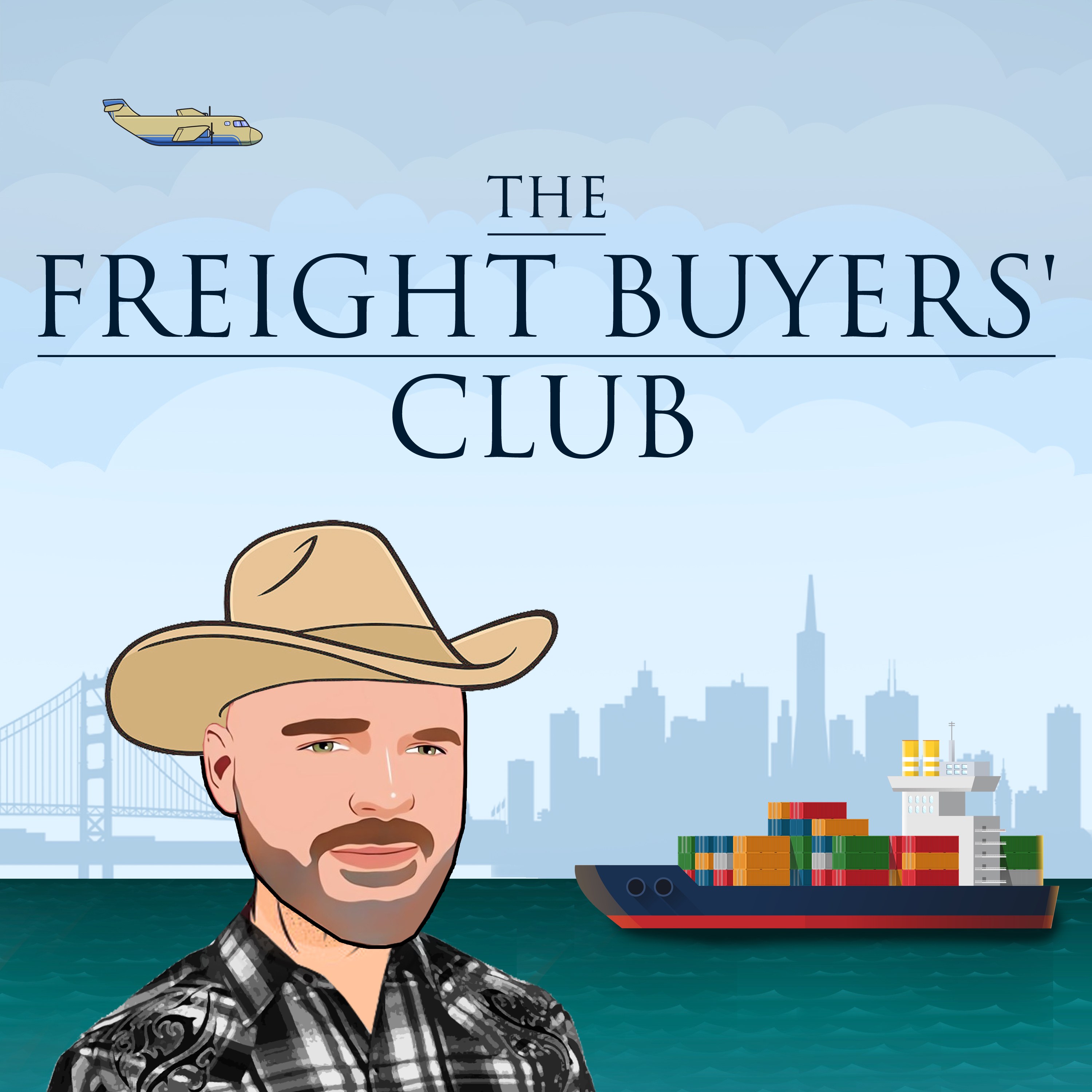Episode Transcript
[00:00:03] Speaker A: Welcome to the Freight Buyers Club. This interview is sponsored by Demerco Express Group. And today I'm joined by Svi Schreiber, CEO of freightos, who has come on to look at what's happening in container shipping markets. Hello? Z.
[00:00:17] Speaker B: Hey.
[00:00:18] Speaker A: Okay. Tariffs as part of an agreement hammered out in Geneva over the weekend, it now seems that the US will lower tariffs on Chinese goods to 30% from.
[00:00:30] Speaker B: 145% and.
[00:00:32] Speaker A: China will reduce duties on US imports to 10% from 125% for the next 90 days while negotiations continue.
So we're still waiting for some of these details. V It's very early in the day. It's quite seismic news for anyone in trade though. What do you think as an early assessment this means for container shipping rates and trade volumes and are you expecting in the coming days to see a big surge in demand or new sailings announced out of China?
[00:01:02] Speaker B: Well, Mike, yeah, I mean it's a while since I did my maths degree but from what I remember 30 is a lot less than 145 and that is going to have a big impact as your question anticipated.
So yeah, now we're suddenly back as of Wednesday to relatively normal tariffs. Most goods can survive 30%, maybe a few can't but most goods, you know, Chinese goods to not be cheap and 30% is probably something which will, you know, which will be possible to trade. So I think you'll see a trade a going back more or less to normal but probably more than normal for two reasons because there's some, some stuff that was cancelled for various reasons, even stuff that was sort of all ready to ship and then Suddenly there was 145%. So there's some pent up demand for sure, number one. The other reason you'll see a sudden spike in demand is that this is only for 90 days. So people don't know what's going to happen in 90 days time. So they're going to want to ship goods from China and front load ahead of the 90 days just in case. Obviously they're hoping to extend this but just in case they don't, people might want to ship extra from China. So you might essentially have an early peak season. Peak season often, sometimes it's sort of August, September, but you might see peak season coming forward to June, July just because nobody wants to risk what happens after August. And so yeah, you're going to see a bit of a peak in demand and then you'll see things normal. If this stays like this then things will More or less normalize because we're close enough to, you know, to what was the situation before Trump. And then in terms of rates which you asked about also, you know, watch the freightos FPX index very closely. It's going to be an interesting time. There is going to be a peak in demand, but the carriers have a lot of capacity so it all depends how they manage that capacity. The rates are only as high as they are now, around $2,400 for FPX01 because the carriers have been blanking sailings and not officially capping the capacity. So in the end we can predict that demand will go up for a while and then normalize. We don't know what will happen to prices because that depends a lot on how the carriers control the supply.
[00:03:07] Speaker A: We did mention earlier that we've seen some of those ships and some of that equipment starting to point a little bit more towards Europe. Do you think that will create any sort of whiplash effect? We've had this lag of cargo not being shipped and ships not sailing to the U.S. are we going to see any sort of knock on domino effect type disruption? Not exactly how we saw it during COVID but we have had this pause and we did have that start and there is a comparison to be made there.
[00:03:32] Speaker B: There is, but in Covid what really messed up the whole network is that there was a significantly elevated demand for many months on end here. We can anticipate maybe there'll be some elevated demand for a month or two both to catch up and front loading, but it won't be more than that. So there will be some disruption, maybe some congestion, but I don't think we'll see anything like Covid because this is not going to be.
There's no underlying increase in demand. It's only a short term thing and.
[00:04:03] Speaker A: The avoidance of risks. Already seen front loading, what probably about eight different times over the last 12 months as well. So I guess quite a lot of that cargo was shipped daily already.
[00:04:11] Speaker B: Yes, I think that's a good point. I think some of the cargo was front loaded before the 145% came in and that's another reason why the peak in demand now may not be as bad as it might have been because some of the importers managed to stock up ahead of the punitive tariff.
[00:04:28] Speaker A: Svi Schreiber, CEO of freightos we heard it here first straight from you. Big surge to come, but maybe an early peak season. Thanks very much for your time today on the Freight Buyers Club.
[00:04:38] Speaker B: Thanks Mike.


